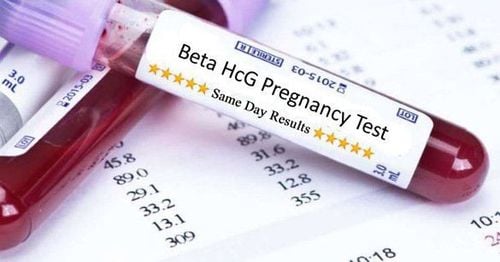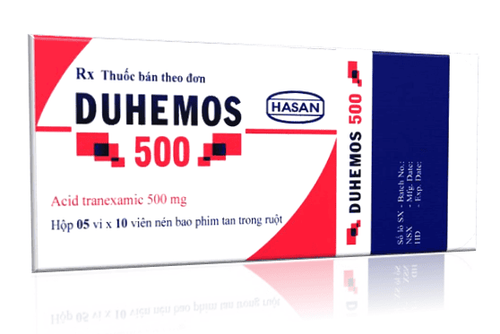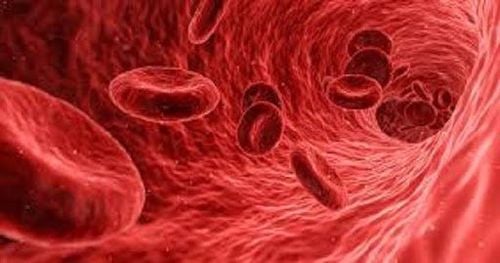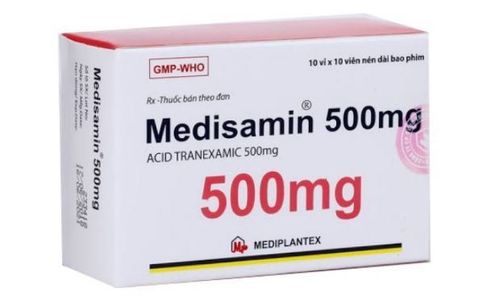This is an automatically translated article.
Articles written by MSc. Le Thi Na - Hematology Doctor - Laboratory Department - Vinmec Times City International Hospital
Prothrombin test is an important test to help detect blood clotting abnormalities in the plasma phase. When should a patient have this blood test? What is the clinical significance of this test?
Coagulation is a physiological process that takes place in the human body, when there is damage to the vessel wall, but it can also be abnormal (not physiological) when there is an impact (infection, cancer, ...) cause imbalance in the coagulation - anticoagulant system. Prothrombin test (PT) is one of the important tests to help detect blood clotting abnormalities in the plasma phase.
PT test can be done manually, by semi-automatic or automatic equipment. Currently, automatic generations of devices are used quite commonly. At Vinmec Times City International General Hospital, there are 02 systems of automatic equipment to perform this test with optical and electromagnetic measurement principles, capable of fast testing, large capacity, accurate results with both blood samples increased plasma turbidity due to diseases such as hyperlipidemia, hyperbilirubinemia; Cloudy plasma due to blood collection after eating.
Tests of hemostasis and coagulation in general, including PT, are prone to errors due to influencing factors. Therefore, it is necessary to comply with strict quality management regulations. At Vinmec Times City hospital, PT test has met ISO15189:2012 standard since 2016, and is currently developing CAP (College of American Pathologists) standard.
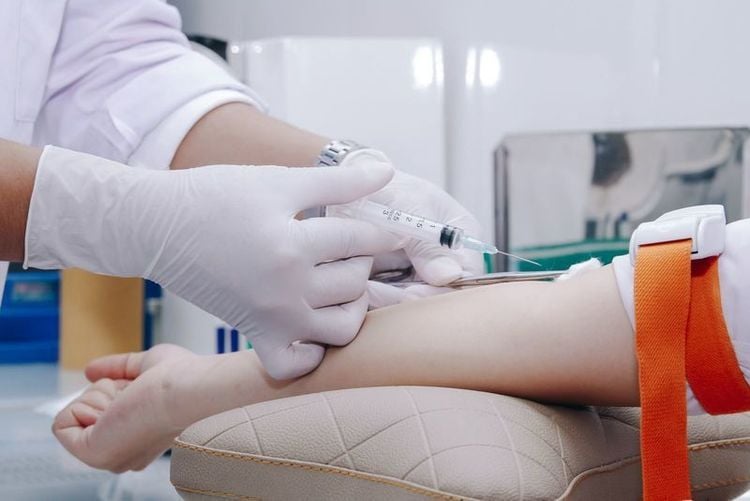
Xét nghiệm Prothrombin giúp phát hiện ra những bất thường đông máu
1. When to do blood clotting gene test?
Prophylaxis: PT test is done before surgery, procedure to screen for abnormalities in coagulation to ensure safety of surgery and procedure. Treatment monitoring: The PT test (INR) is performed periodically in people taking vitamin K antagonist anticoagulants to adjust the drug dose to ensure the desired therapeutic effect; at the same time ensure that no bleeding occurs due to drug use. Diagnosis of the disease: PT test is indicated when there is a risk, signaling a blood clotting disorder (bruising, bleeding under the skin, bleeding mucous membranes, nosebleeds, bleeding gums, menstrual cycle). prolonged or heavy menstrual period, bloody urination or defecation, arthritis caused by bleeding into the joints, chronic anemia, liver disease, ...) or at risk, manifesting hypercoagulability, embolism.
2. Notes when testing PT
In case of no emergency, take blood early in the morning, fast, do not use alcohol, beer, stimulants 12 hours before blood collection. Fasting prior to blood collection is important for laboratories that do not have electromagnetic PT testing equipment (i.e., only photometric equipment).
In case of emergency, take blood when needed.

Người bệnh cần nhịn ăn trước khi phẫu thuật
3. Clinical significance of PT . test
PT test results have 03 ways of expressing: PTs (seconds); PT% (prothrombin ratio as % compared to controls) and PTINR (International Normalized Ratio). In principle, PTs and PT% results can vary between laboratories, but with PTINR, if laboratories strictly follow the quality control process, there is no difference. Compared with the biological reference interval, it is possible to know whether the PT test result is normal or abnormal. However, in order to justify the diagnosis or assess the risk level due to abnormal PT, it is necessary for the doctor, based on the results of the surgery or in combination with the information in the patient's medical report to interpret the results. test. Prolonged PTs (corresponding to decreased PT%, increased PTINR) is an indicator of decreased activity of one or more clotting factors (I, II, V, VII, X). The cause is usually vitamin K deficiency, liver disease, acquired coagulopathy, ... or due to taking some drugs, especially anticoagulants, anti-vitamin K. PTs decrease (corresponding to increased PT%, PTINR decrease) is an overcrowded alarm. PTINR alone is used to monitor and adjust anticoagulants, vitamin K antagonists. Blood clotting not only affects the patient's life health, but also affects the treatment regimens of many other diseases, especially those cases requiring surgery. In order to detect blood clotting abnormalities early, you should have regular general health checkups, from which to have a treatment plan to achieve optimal results.
Vinmec International General Hospital has general health checkup packages suitable for each age, gender and individual needs of customers with a reasonable price policy, including:
General health checkup package diamond Vip General Health Checkup Package Special General Health Checkup Package Comprehensive General Health Checkup Package Standard General Health Checkup Package Patient's examination results will be returned to your home. After receiving the results of the general health examination, if you detect diseases that require intensive examination and treatment, you can use services from other specialties at the Hospital with quality treatment and services. outstanding customer service.
Customers can call the hotline or register for an online consultation with Vinmec HERE.





